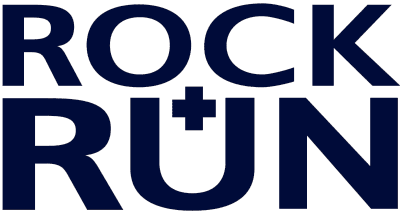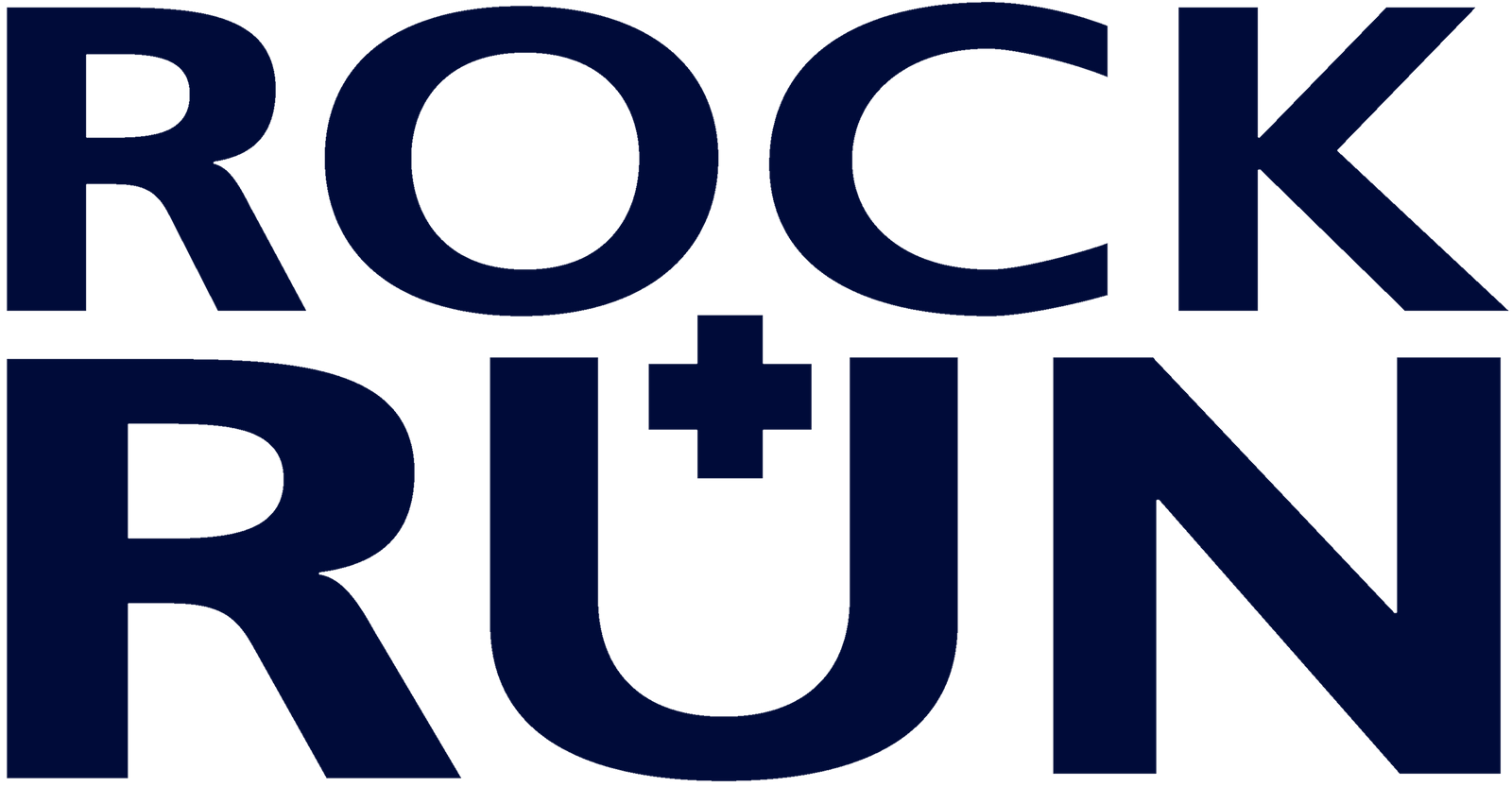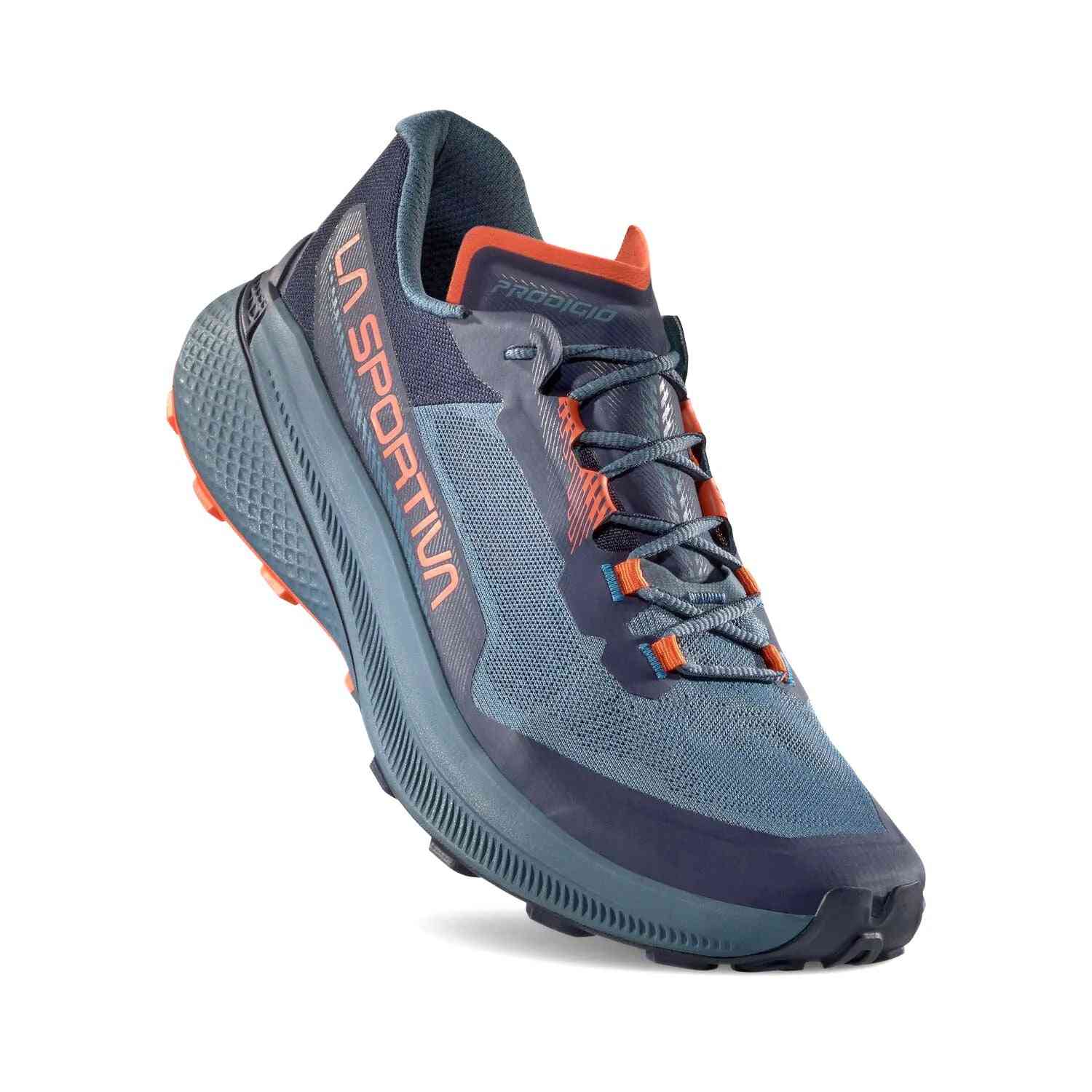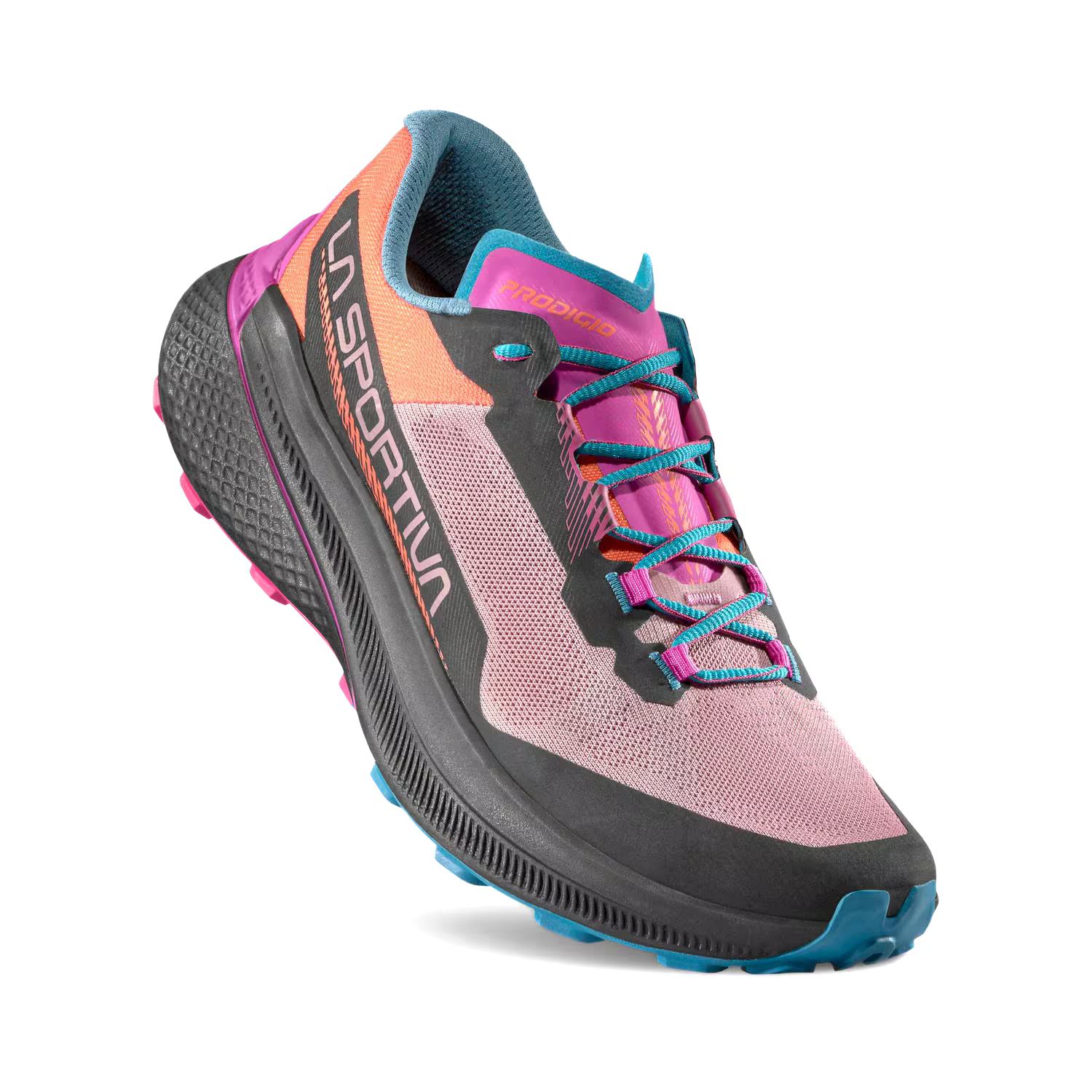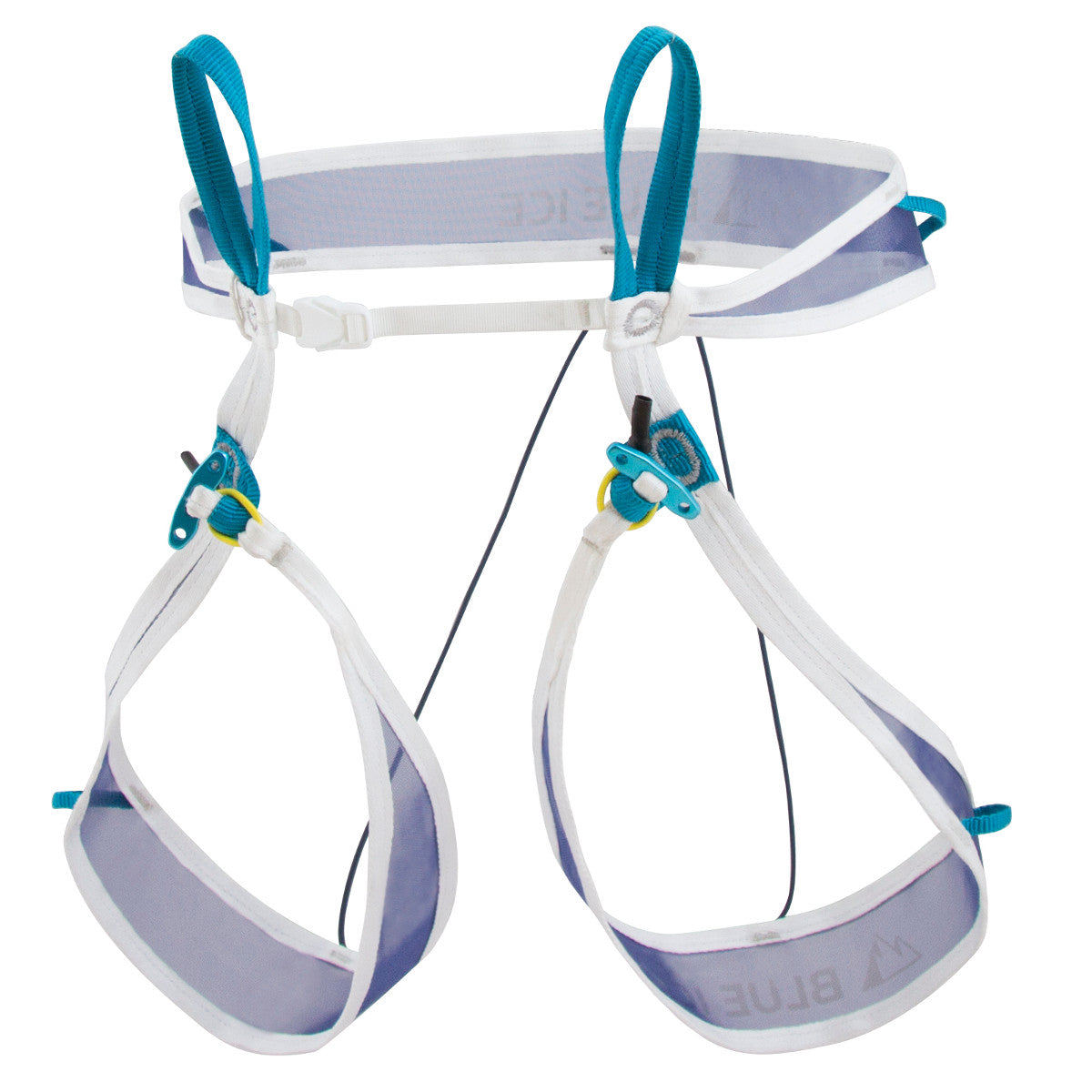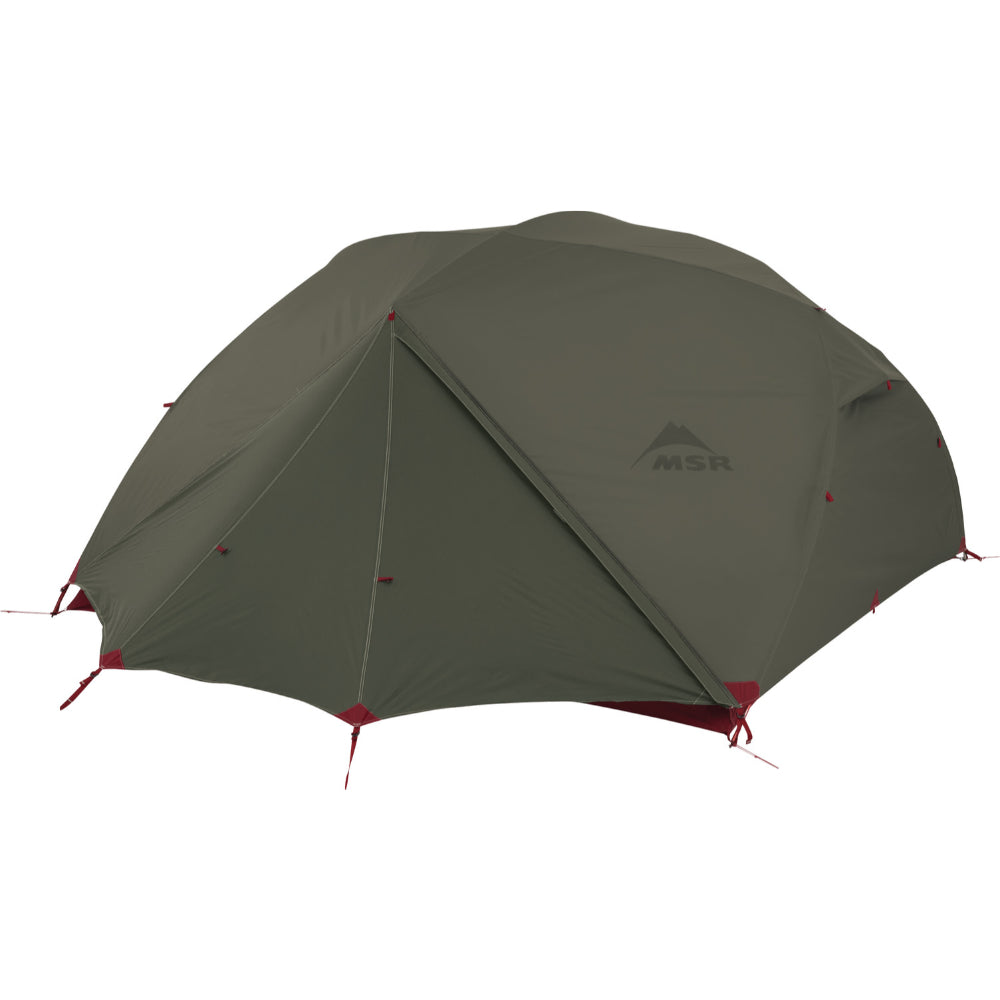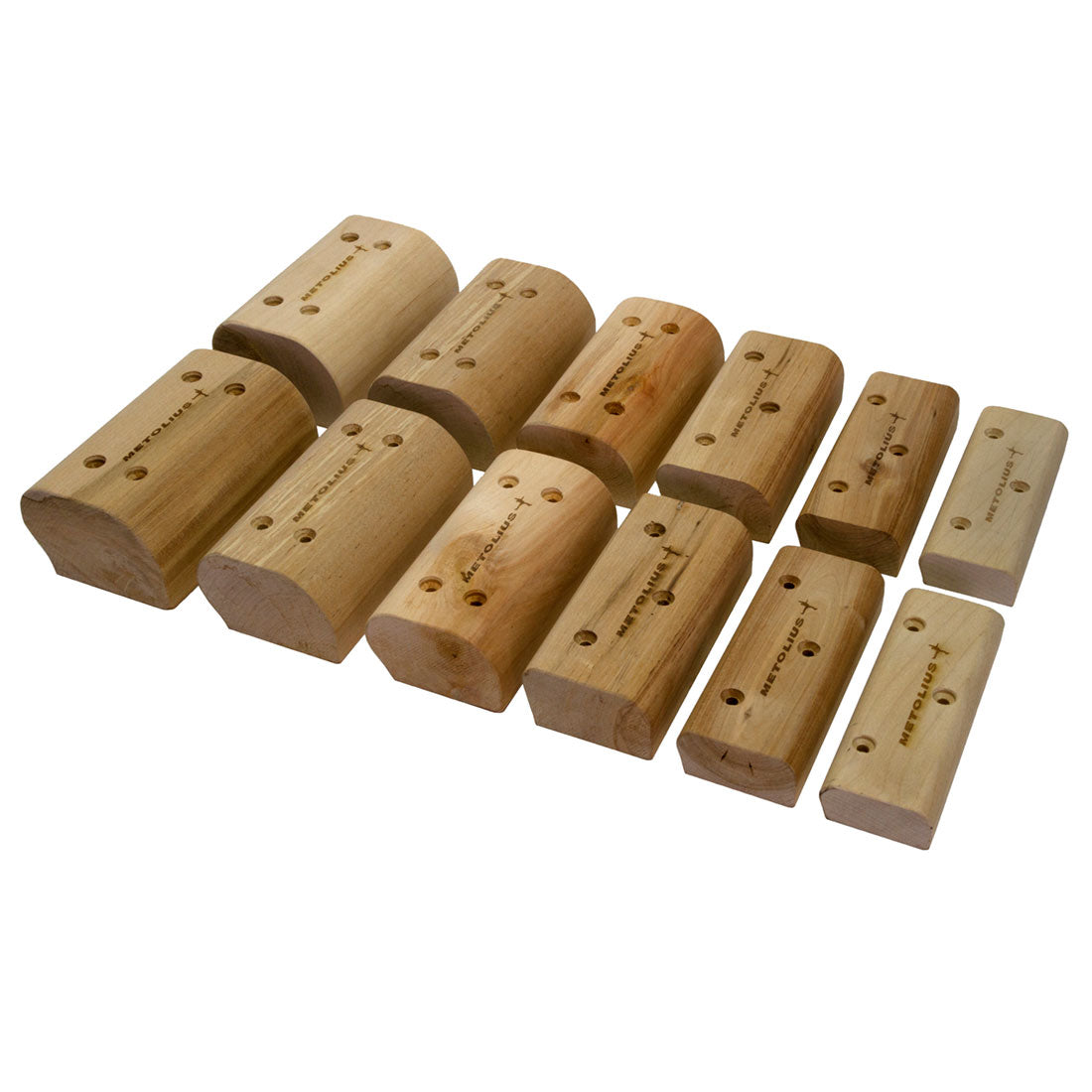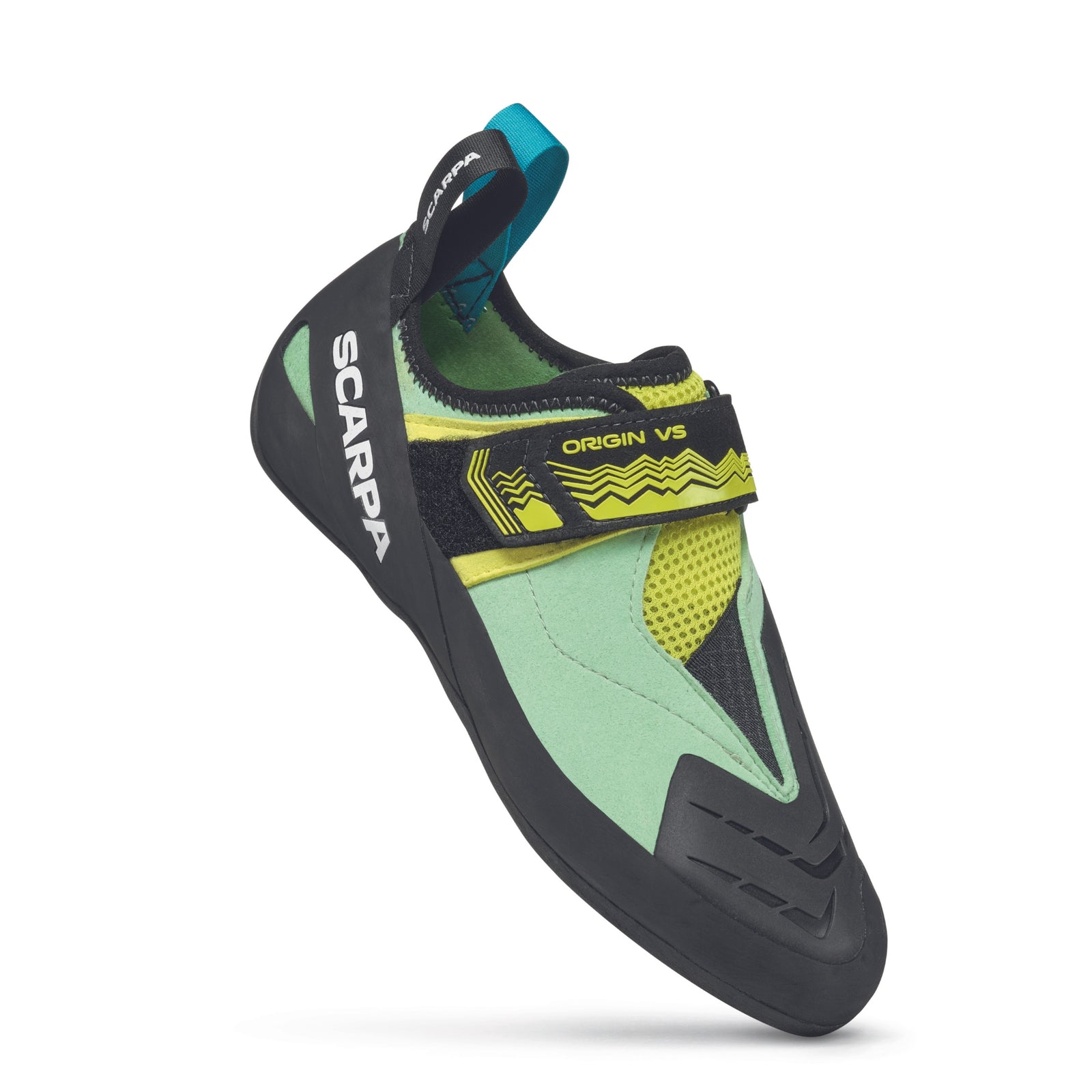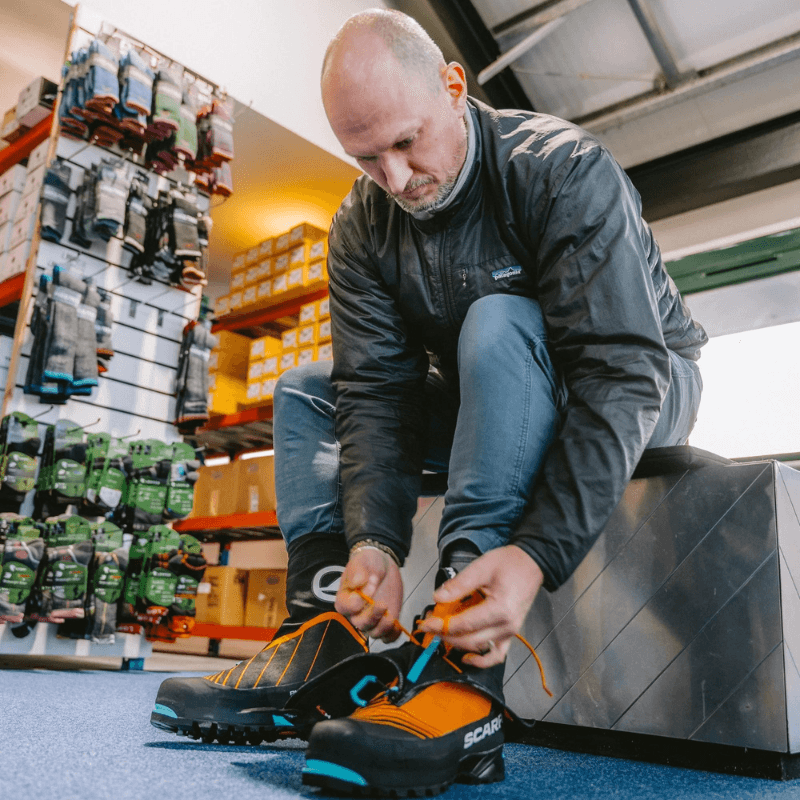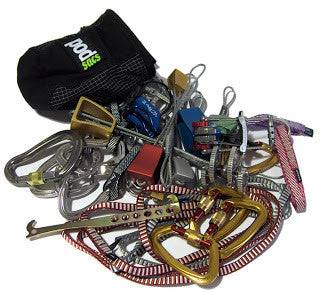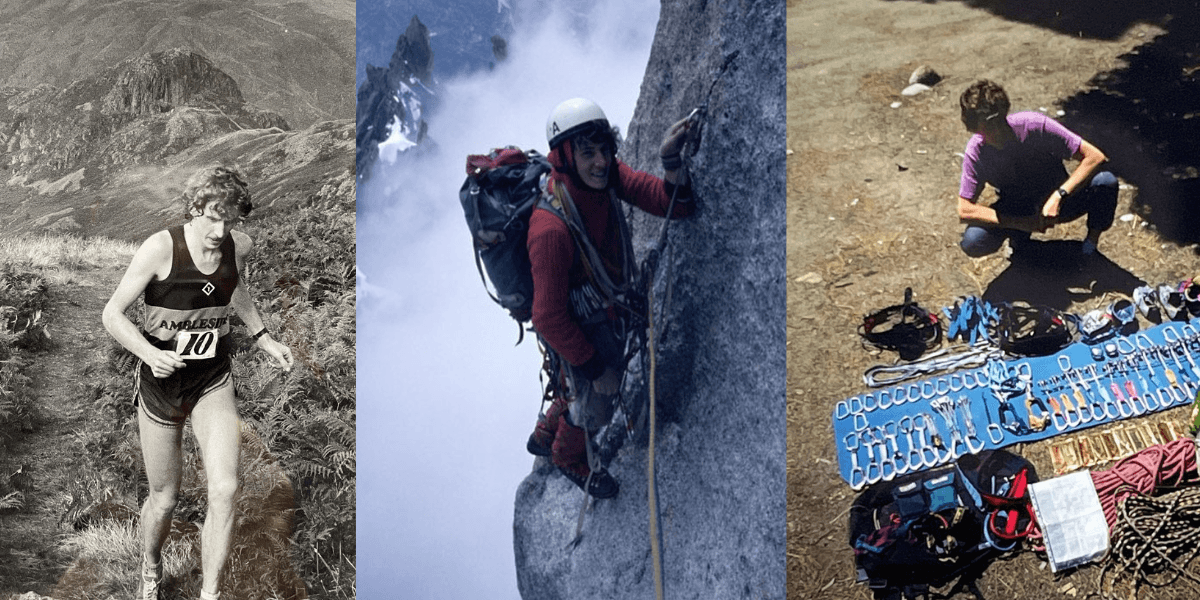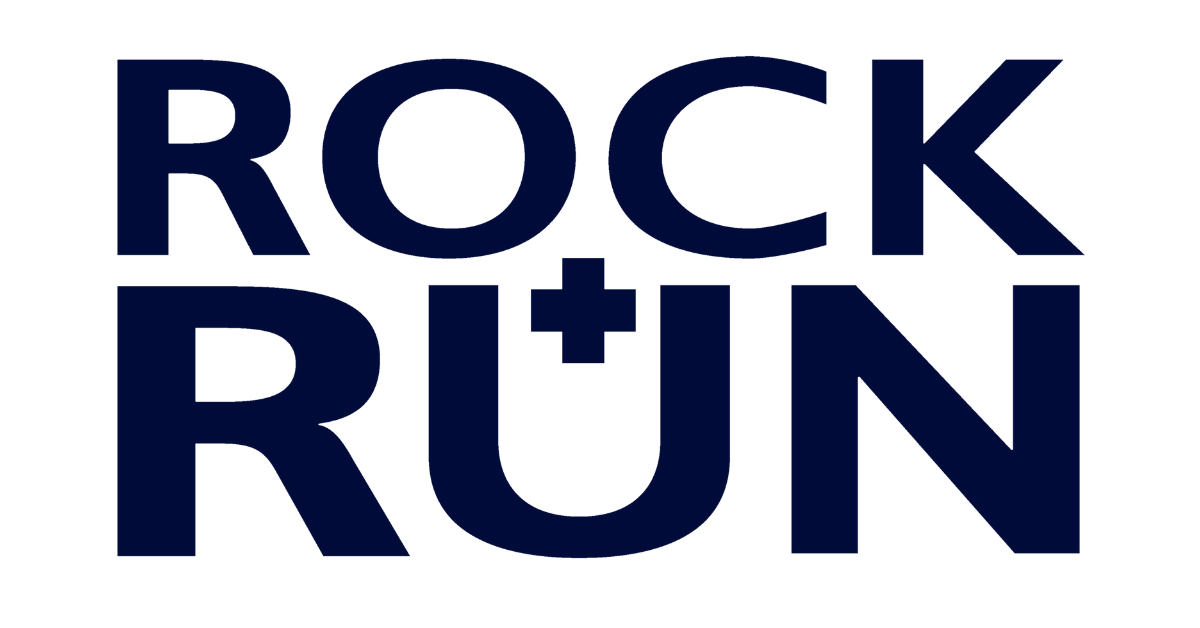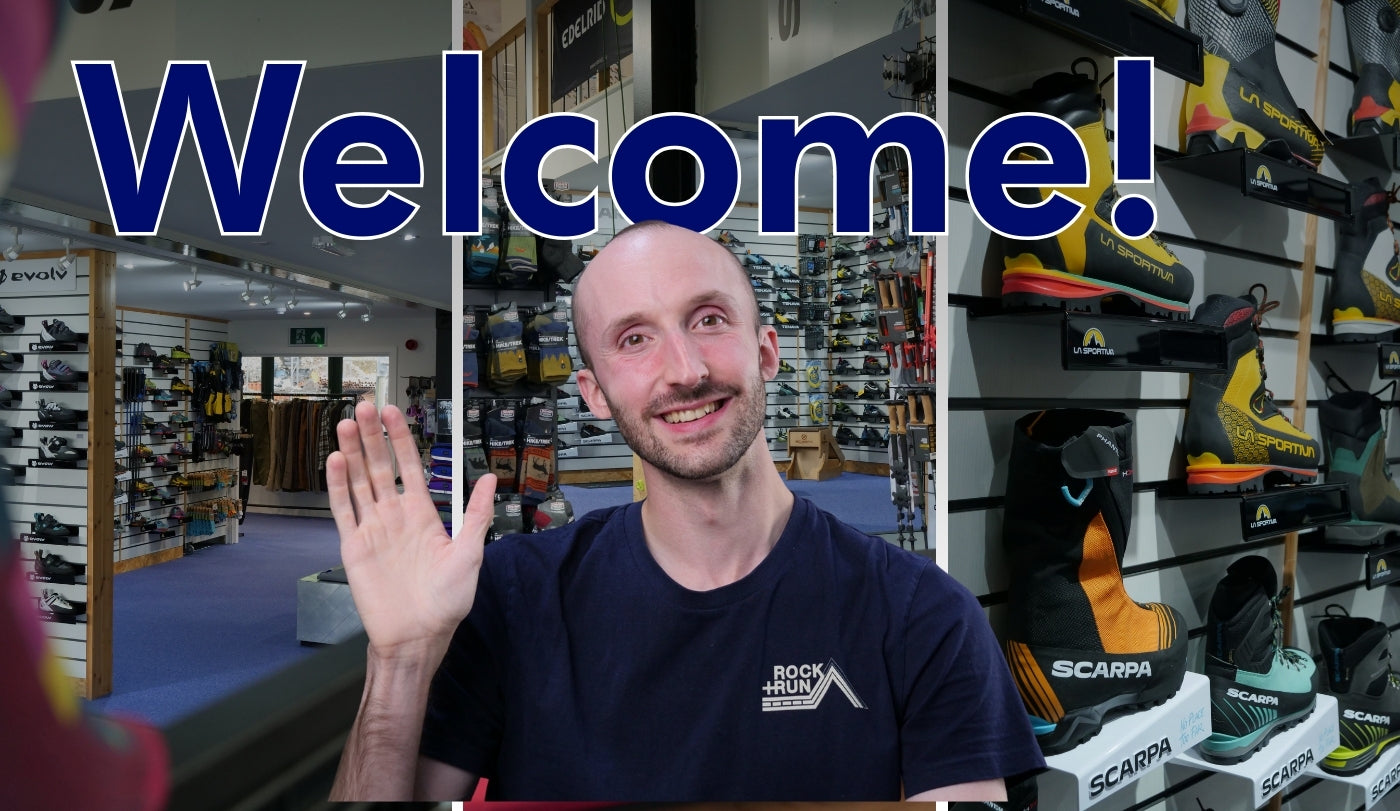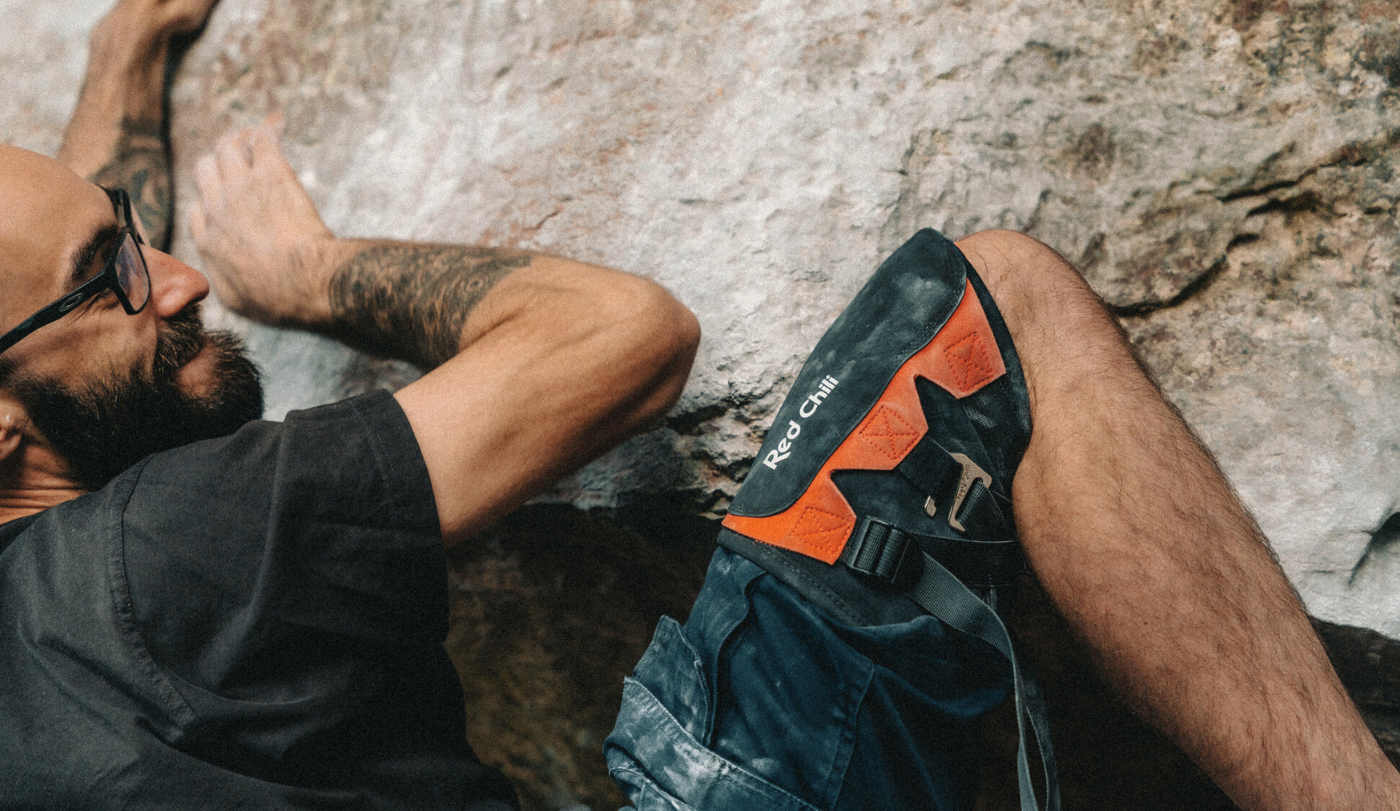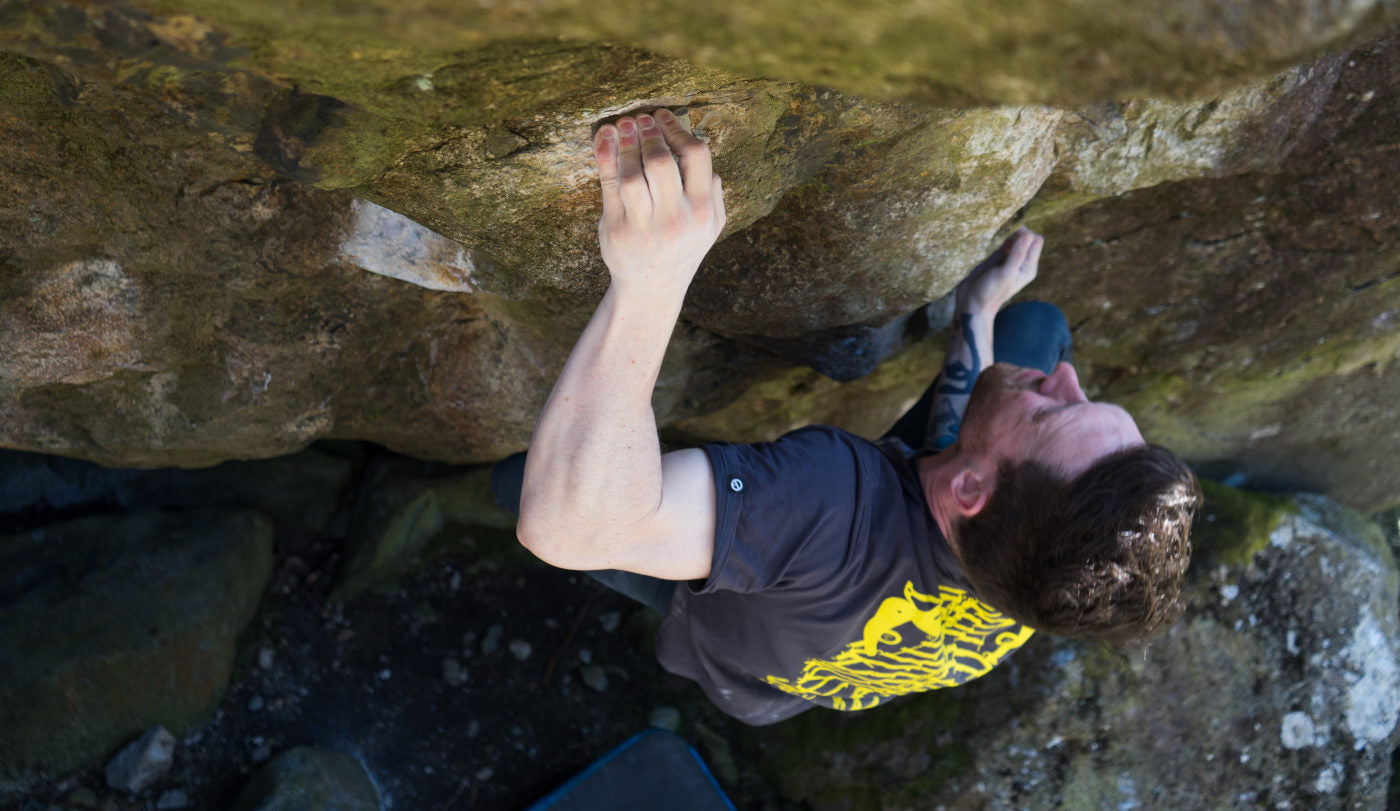
Perhaps it's something to do with an apprenticeship on the classic rock routes and scrambles of the Lake District, or perhaps I'm just a natural born contrarian, but I have long been drawn to remote bouldering destinations, preferably set against stark mountain backdrops. The thought of vast angular monoliths, perched on grassy platforms affronting a rugged skyline of crags and snow capped peaks, far from the masses, is my idea of heaven. So as you would imagine, the chocolate box bouldering destinations dotted throughout the Alpine regions have long held a certain fascination for me, and visiting a new one of these areas is something I look forward to with eager anticipation. Situated on the flanks of Ballunspitze, in the Silvretta Alps of the Austrian Tirol, Silvapark is best known for its extensive ski massif, above the typically Alpine villages of Wirl and neighboring Galtür. The bouldering potential of the area first became apparent when, in 2003, various members of the Sport Climbing Club of nearby Arlberg made exploratory investigations into the vast granite boulder field which sits slap bang in the middle of the main ski area. Since then various groups and individuals have left their mark, opening up over 160 quality climbs on the sizable blocks strewn chaotically across the mountainside. Of course almost all but those in the nearby locality were blissfully unaware of the venue until 2005, when Bernd Zangerl brought the area to the worlds attention with his ascent of a proposed Font 8C+ boulder problem, in the shape of the impressive Memento (now considered 8B+), and then again in 2007 with his ascent of the burl fest that is Anam Cara, graded 8C. (Incidentally, for those into their route name etymology, 'anam cara' is an old Irish phrase meaning “soul friend”.) Grade debates aside, the innumerable action shots and videos featuring these steep, striking lines, cast against a beautiful Alpine backdrop, shone a deserved spotlight of interest on this great area and sowed a seed in the mind of many potential visitors, myself included. The final piece fell into place in 2010, with the release of the graphically superb 'Alpen en Bloc' (Vol 1) guidebook, which finally unlocked to the masses, the secrets of Silvapark...
 Target Market
Target Market
Getting down to the nitty gritty, who exactly is Sivapark going to appeal to? Well, with sectors ranging from 2000m to 2300m in altitude, its main asset, other than the incredible location, is its reliable summer conditions (in terms of temperature at least). In fact, when you consider Europe's foremost summer bouldering venue, Magic Wood, is located at a mere 1400m you can instantly see the appeal. Combine good summer conditions with a compact, densely packed climbing area and a few more heads begin to turn. Rubber Gun, 7aAlso, when measured against similarly high bouldering locations, such as the Gotthard or Grimsel Passes of Switzerland, Silvapark has a much higher concentration of harder problems (7b-8a), meaning it caters far better for the stronger protagonist. In my view, the area would also make a good place to visit with a non climbing partner, as with plenty of other activities to hand – walking, swimming, mountain biking, sun bathing, fishing etc. – a generally glorious situation, capped off with a friendly non climber orientated campsite, it makes a delightful location for all lovers of the outdoors. In terms of detracting features, many will scoff (or wheeze?!) at the steep 1 mile approach walk-in (although there is a €4 cable car option - see embedded map), particularly those who like to roll out of their tent, in Magic Wood campsite, a few hundred meters to the first boulders. Personally, I relished the crag approach, as it takes in some fabulous scenery and warms you up perfectly for a day crushing... however, I recognise that I may be in the minority. Another factor that may turn a few potential visitors off, is the roughness of the rock. Again, I've never really had an issue with aggressive rock types, although I understand many, particularly heavier climbers, can be deterred by this. Finally, if you went off what's in the guidebook then there is not a great deal (25 to be precise) for those looking for problems below Font 6a (V2). Having said that, there is a vast number of problems (of all grades) which are not recorded in the 'Alpen en Bloc' guidebook, so if you are prepared to use your own initiative then climbers of all ability should be fine. In fact, according to the Galtür website, there are plans afoot to mark out some kids circuits. However, I personally wouldn't say this was a particularly child friendly venue – there are a great deal of short drops and jagged rocks scattered amongst the boulders.
Map (zoom in to see specific sectors)
When to visit
At an altitude of 2000m plus this is a summer only venue (the snow line actually reached the upper sector whilst we were there in July!) and therefore only really viable from early June to early November at the latest. As with all Alpine locations, Silvapark can be subject to wet weather, however this is usually not prolonged and the solid, exposed nature of the rock means it dries almost instantly.
 Logistics
Logistics
Silvapark is located in the southwest of the country and the nearest international airport is that of Innsbruck, 115km to the east. This is a simple 1 hour 20 minute drive by (hire) car, but can also be easily achieved via train or bus in around 2.5 hours (to pre-book see link below). Other airport options are Friedrichshafen, Germany (2 hours drive) and Zurich, Switzerland (2 hours 45 minutes drive). All these airports are serviced by the budget operators. Bear in mind if approaching from the west, Sat. Navs and Internet directions may send you over the Silvrettastrasse - a beautiful Apine pass dissecting the Hochalpenstrasse National Park. This is a TOLL road and as such costs around €11 to cross (see embed map for more details). In theory, once based in the vicinity you could get to and from the climbing, shops and your accommodation (whether that be camping or more civilized digs) without a car, however practically I think this would be a bit of a pain. If you are unable to access a vehicle, then hiring a bike from Galtür would be a viable alternative (see link below). You could even stash your pad/s at the climbing area so you don't have to ferry them back and forth continuously. This is something the locals seem to do quite readily (presumably due the steep approach), and is a practice which can be turned to the advantage of the single padded visitor. Obviously, don't go dragging pads off to different sectors, but as many areas are quite compact you may be able to borrow stashed pads for a short period to try nearby lines that would otherwise be too necky with one pad. If you do this always be courteous to the borrowed equipment and make sure you put it back where you found it! As alluded to above, there is a good selection of amenities close to hand, with plenty of hotels, restaurants and shops in nearby Galtür, whilst the campsite sits conveniently below the climbing area, by the small picturesque lake of “Zeinissee”. I have pinned the locations of all the most relevant amenities to the embedded map.
 Guidebook
Guidebook
The climbing is covered in the Alpen en Bloc (Vol 1) guidebook [currently out of print], which is a large guide (360 pages) focusing on 13 areas in western Austria, central to eastern Switzerland, and the southern and northern tips of Germany and ItalyAlpen en bloc (Vol 1) respectively. In fact a number of nearby areas could easily be incorporated into a trip to the Silvretta region. The guide itself is a wonderful work of graphic design and looks visually excellent, packed with great action shots, colour photo topos and, despite being a German language guide, all essential details in English. Unfortunately, the maps are less impressive and in some cases down right terrible. In the specific case of Silvpark, the sectors overview map is very poor, with few reference points, no scale measurement and numerous missing paths. In light of this, I have made an improved version of the same map in Google Maps (see embedded map). I suggest you take a close range screen print of this, or annotate the guidebook, as this should help you to orientate yourself much quicker. On the upside, once you have some points of reference in the various sectors, it's a very easy place to navigate.
 Recommended problems
Recommended problems
Thor (7b), Kobra (7a), British Airways (8a) Schmetterlingswand (5+), Squ Man (7a+), Flash Face (7c), Super Crack (7a), Striptease (7b), Fotoblock (6a), Crème Brulee (7b+), Red Rock (6b), Shining (8a), Palm Beech Kante (7b), Rubber Gun (7a), Jolly Jumper (7b+), Schattenkrieger (8a), Golden Gate (8b), Dingo (5+), Outlaw (4), Goldfinger (6c), Colibri (7c), Go Home (6c).
Summary
Thanks to the steep approach, short season and roughness of the rock this is never going to be the new Magic Wood, but personally I think that's a good thing which should help keep the area in its original state long into the future. Overall, a fine summer bouldering destination with great problems (especially in the mid to higher grades) , quick drying rock, fabulous scenery and generally something for everyone.
Videos
http://vimeo.com/14165772 (High quality, numerous problems - 9mins)
http://vimeo.com/27921007 (Various problems - 6mins)
http://vimeo.com/9516278 (Another good vid - 6mins)
http://vimeo.com/21479963 (Also features other Alpine venues - 11mins)
http://vimeo.com/18659999 (Anam Cara, 8c)
Useful links
Galtür website:
http://www.galtuer.com/ Accommodation:
http://www.galtuer.biz/ Campsite:
http://camping-zeinissee.galtuer.at/ Bike Hire:
http://www.intersport-wolfart.at/  Perhaps it's something to do with an apprenticeship on the classic rock routes and scrambles of the Lake District, or perhaps I'm just a natural born contrarian, but I have long been drawn to remote bouldering destinations, preferably set against stark mountain backdrops. The thought of vast angular monoliths, perched on grassy platforms affronting a rugged skyline of crags and snow capped peaks, far from the masses, is my idea of heaven. So as you would imagine, the chocolate box bouldering destinations dotted throughout the Alpine regions have long held a certain fascination for me, and visiting a new one of these areas is something I look forward to with eager anticipation. Situated on the flanks of Ballunspitze, in the Silvretta Alps of the Austrian Tirol, Silvapark is best known for its extensive ski massif, above the typically Alpine villages of Wirl and neighboring Galtür. The bouldering potential of the area first became apparent when, in 2003, various members of the Sport Climbing Club of nearby Arlberg made exploratory investigations into the vast granite boulder field which sits slap bang in the middle of the main ski area. Since then various groups and individuals have left their mark, opening up over 160 quality climbs on the sizable blocks strewn chaotically across the mountainside. Of course almost all but those in the nearby locality were blissfully unaware of the venue until 2005, when Bernd Zangerl brought the area to the worlds attention with his ascent of a proposed Font 8C+ boulder problem, in the shape of the impressive Memento (now considered 8B+), and then again in 2007 with his ascent of the burl fest that is Anam Cara, graded 8C. (Incidentally, for those into their route name etymology, 'anam cara' is an old Irish phrase meaning “soul friend”.) Grade debates aside, the innumerable action shots and videos featuring these steep, striking lines, cast against a beautiful Alpine backdrop, shone a deserved spotlight of interest on this great area and sowed a seed in the mind of many potential visitors, myself included. The final piece fell into place in 2010, with the release of the graphically superb 'Alpen en Bloc' (Vol 1) guidebook, which finally unlocked to the masses, the secrets of Silvapark...
Perhaps it's something to do with an apprenticeship on the classic rock routes and scrambles of the Lake District, or perhaps I'm just a natural born contrarian, but I have long been drawn to remote bouldering destinations, preferably set against stark mountain backdrops. The thought of vast angular monoliths, perched on grassy platforms affronting a rugged skyline of crags and snow capped peaks, far from the masses, is my idea of heaven. So as you would imagine, the chocolate box bouldering destinations dotted throughout the Alpine regions have long held a certain fascination for me, and visiting a new one of these areas is something I look forward to with eager anticipation. Situated on the flanks of Ballunspitze, in the Silvretta Alps of the Austrian Tirol, Silvapark is best known for its extensive ski massif, above the typically Alpine villages of Wirl and neighboring Galtür. The bouldering potential of the area first became apparent when, in 2003, various members of the Sport Climbing Club of nearby Arlberg made exploratory investigations into the vast granite boulder field which sits slap bang in the middle of the main ski area. Since then various groups and individuals have left their mark, opening up over 160 quality climbs on the sizable blocks strewn chaotically across the mountainside. Of course almost all but those in the nearby locality were blissfully unaware of the venue until 2005, when Bernd Zangerl brought the area to the worlds attention with his ascent of a proposed Font 8C+ boulder problem, in the shape of the impressive Memento (now considered 8B+), and then again in 2007 with his ascent of the burl fest that is Anam Cara, graded 8C. (Incidentally, for those into their route name etymology, 'anam cara' is an old Irish phrase meaning “soul friend”.) Grade debates aside, the innumerable action shots and videos featuring these steep, striking lines, cast against a beautiful Alpine backdrop, shone a deserved spotlight of interest on this great area and sowed a seed in the mind of many potential visitors, myself included. The final piece fell into place in 2010, with the release of the graphically superb 'Alpen en Bloc' (Vol 1) guidebook, which finally unlocked to the masses, the secrets of Silvapark...
